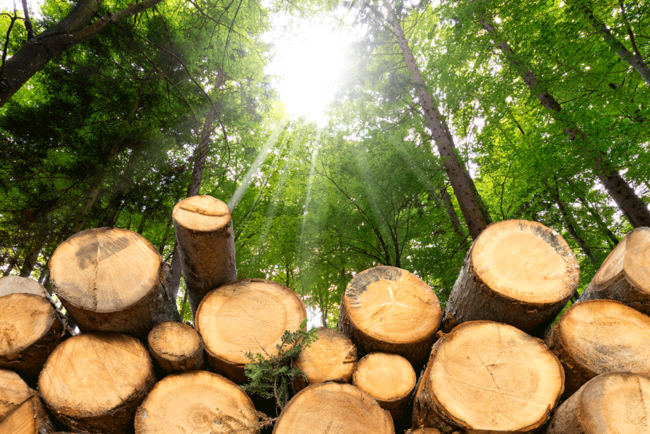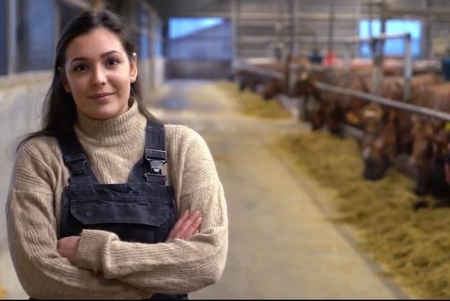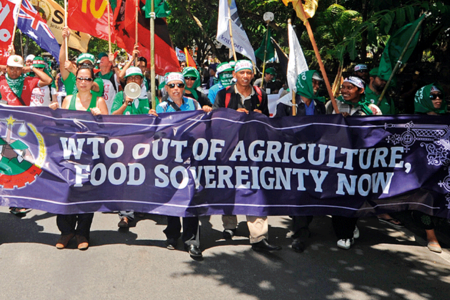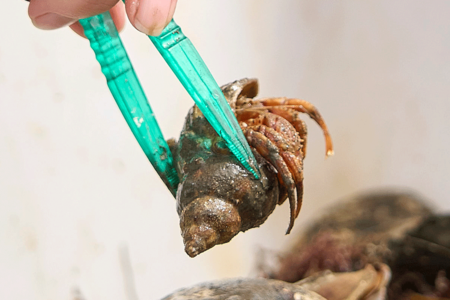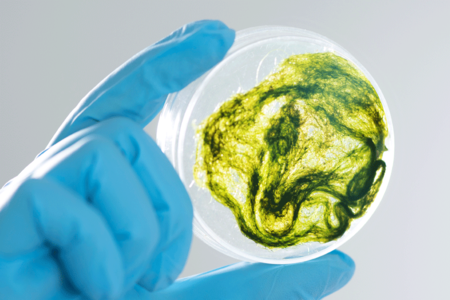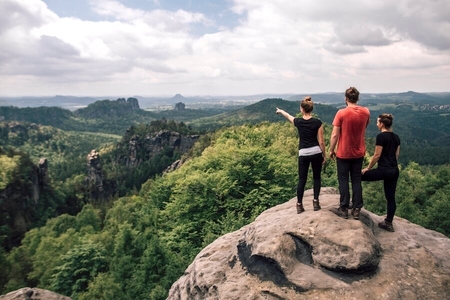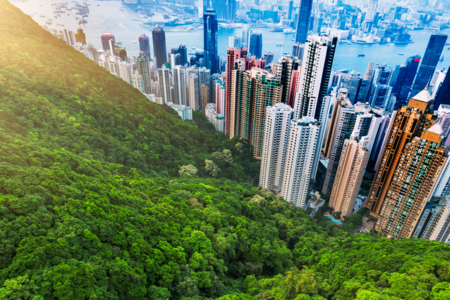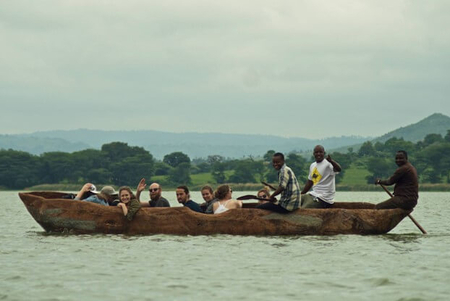Haein Lee took a chance when she pulled up her stakes and moved to Copenhagen to study Environmental and Natural Resource Economics. In Denmark, she has found the perfect combination of happiness, ambition, high academic standards and job-related courses which all bring her closer to her dream career: Working with environmental politics at the Danish government.
Environmental and Economic Interests Combined
In the heart of Copenhagen’s city center, surrounded by parked bikes in a rainbow of colours, we meet Haein Lee for a morning coffee at the local library. A ray of sun has found its way through the large windows illuminating the spot where she is sitting: "Denmark has changed my life" she says with a smile.
Although moving to a new country was challenging to begin with, Haein Lee does not regret for one moment that she chose Denmark and the Faculty of Science as her destination. She lived in Denmark two years before entering the MSc programme, and her learning experience has been quite different from what she was used to back home in Korea:
"It has been a great experience studying in Denmark, but it was tough to begin with. I had to get used to the Scandinavian block structure, the long hours in class and the vast amount of reading material."
Haein Lee always had a great interest in environmental issues and a strong wish to pursue a career within environmental sciences. The MSc programme at University of Copenhagen was unique because she could combine her degree in Economics from Korea with her interest in Natural Resources and Sustainability:
"I was interested in environment, and wanted it to be related to economics. So in that sense, it was the perfect programme for me. I was ready to try something new."
Real Life Cases – A Glimpse Of the Future
One of the things that Haein Lee likes most is the close connection between the programme and the job market which is reflected through the many exercise hours incorporated in the courses. These practical elements give her the opportunity to apply her knowledge to real life cases – something she has been searching for as a student. At University of Copenhagen, there is a lot of emphasis on working with different companies’ environmental cases and policies throughout the programme:
"In Korea, we learn advanced mathematics, but students do not really know how to utilize this knowledge in real life. Here, it sometimes feels simple, but that is important as well – knowing how to use your knowledge in a simple matter. It is really nice to learn that there can be a different approach to teaching and learning”.
Moreover, her experience is that the Danish teaching environment gives her a realistic picture of her future work-life as the students are encouraged to use their competencies early on in their studies:
"During the programme, we will, among other things, have the course "Introduction to Consultancy". Here, we will work on environmental and economic case studies with either companies, organizations, research institutes or the government. When dealing with these cases, we have to understand how to assess the different policies and regulations on environment, and how we can create policies which will bring us closer to our environmental goals." she tells us enthusiastically.
“It is really nice to learn that there can be a different approach to teaching and learning” says Haein Lee.
Flat Structure Fosters Learning
Danish universities are often known for their flat structure and small distance between students and professors.
“I am not afraid of asking questions anymore. If there is anything I am in doubt about, I can simply ask the professor. In Korea, I would have gone home and tried to figure it out myself. But by asking questions immediately during class, I can check up on what I am curious about, and sometimes, these questions lead me to some extra information which is really important in order for me to truly connect with what I have read in the material.” “The students here are very focused on their studies. But instead of competing against each other, they cooperate. It creates an atmosphere where people can be ambitious without feeling hyper tensioned.”
Hard As A Coconut – Soft As A Peach
Often, international students worry that Danes might seem too cold and difficult to get to know. Haein Lee recognizes the thought, but explains that northern Europeans can be compared with coconuts – they are difficult to get through at first, but once you get to know them, you have a friend for life:
"Someone told me about the Coconut Theory where he compared northern Europeans, specifically Danes, with coconuts, and southern European people with peaches.
With peaches, you can get through the flesh very easily, but once you get to the core, you cannot go inside of it. It is a hard core which is only allowed for very close people. They easily become friends with strangers, they are very friendly, warm, and welcoming to other people, but once you get to that core, you are not allowed to go any further.
Coconuts on the other hand have a very hard shell, but if you knock on it many times with the right tools, you can get through. And once you get through, you can just go all the way through – even to the core."
Career Opportunities in Denmark
For Haein Lee, several things have made her want to stay in Denmark after her graduation, including the Danish work-life balance, the job opportunities within environmental sciences, and the content atmosphere:
"My dream at the moment would be to work at the government with their environmental policies. I am interested in the regulation side of it: to create good regulations for the market failure, and choose the environmental and economic goals at the same time. It may sound idealistic, but that is what I want to do."
However, Haein Lee’s motivation for studying and learning more has also increased during her MSc programme. This has made her consider applying for a PhD at the faculty:
"So far, I have enjoyed studying, which I did not expect. I worked for 12 years before I entered the MSc programme. When you have a job, you use your knowledge. With education, you use dedicated hours to add up new knowledge. I really enjoy this learning experience I have had during my MSc programme, and therefore, I am considering applying for a PhD."
Finally, it is not only the career opportunities that make Haein Lee want to stay in Denmark. She is also attracted to the Danish view on life:
"People here are content. They find happiness from small things. If the sun is shining and the weather is beautiful, they go for a walk in the nature, and that makes them happy. And I actually enjoy that very much."
Choosing University of Copenhagen
Haein Lee is not in doubt when it comes to recommending the University of Copenhagen to other international students:
“The teachers are enthusiastic, they care about the students, we have a very close connection with the professors, and the programme is well structured. I also really like the facilities”.
Although it can be difficult to move to a new country, and get used to a different way of studying, Haein Lee feels it all pays off in the end:
“In the beginning it was stressful, but now, I feel like my courses are all closely related, and when combined, they make sense. The knowledge I have gained here is not isolated, it is applicable. I feel that the MSc programme has widened my opportunities. ”The teachers are enthusiastic, they care about the students, we have a very close connection with the professors, and the programme is well structured." - Haein Lee, MSc student in Environmental and Natural Resource Economics
